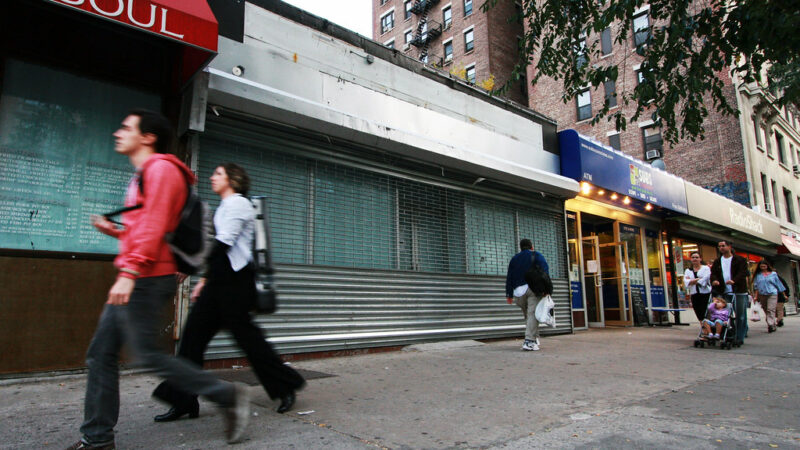'Private equity is the architect of the next crash which will hit every household'.

Prem Sikka is an Emeritus Professor of Accounting at the University of Essex and the University of Sheffield, a Labour member of the House of Lords, and Contributing Editor at Left Foot Forward
People are looking for a post-Covid economic recovery, but the UK is incubating a new financial crisis which will be worse than the 2007-08 financial crash. Private equity is the architect of the next crash which will hit every household.
Private equity consortiums have got their tentacles into 124 acquisitions so far in 2021. Many well-known names are now controlled by private equity. These include supermarket Asda, motoring support group AA, infrastructure company John Laing, insurer LV, Power generation firm Aggreko, aerospace company Meggitt, Southern Water, care homes and Morrisons is likely to become another trophy for private equity.
Many private equity-owned businesses have been milked, destroying jobs, pensions and supply chains. Examples include Debenhams, Bernard Matthews, Maplin, Toys “R” Us, HMV, Poundworld, Bonmarche, Cath Kidston, Comet, Flybe, Monarch Airlines and Payless Shoes. Yet the government has done nothing to check the predatory practices of private equity.
Private equity is an alternative form of private financing. It gets its cash from insurance companies, pension funds, banks, trusts, sovereign funds and wealthy individuals. The consortiums function as banks but are not regulated as banks. Despite the dangers of a domino effect and capacity to infect the financial system, there is no check on capital adequacy.
In private equity, there is close affinity between shareholders/partners and directors and there is little external scrutiny of the predatory practices. This deregulatory space is attracting more punters and private equity assets are expected to hit $5.8 trillion by 2025. What will happen to big industries, insurance companies, pension funds and banks when private equity bubble bursts?
Government policies have fuelled the growth of private equity. Artificially low interest rates provide cheap money. The £895bn of quantitative easing has not been used to rebuild the economy, but has been a boon for speculators
Private equity seeks to generate high returns in a short period. Financial engineering, intragroup transactions, tax avoidance and opacity are key tactics in extracting high returns. Returns are extracted through intragroup transactions in the form of rental payments, management fees, royalties and much more. Complex corporate structures and use of tax havens obfuscates the practices.
Instead of investing in long-term share capital, the acquired businesses are loaded with excessive debt, often from a related party in opaque tax havens. The interest is often payable to an affiliate, thus little or no cash actually leaves the consortium. It still reduces taxable profits and UK corporate tax bill.
The debt is secured i.e. private equity becomes a secured creditor. This means that in the event of bankruptcy private equity needs to be paid first. Unsecured creditors such as employees, pension scheme members, supply chain creditors, local councils and HMRC recover little, if anything, of the amounts due to them.
The private equity owners of Bernard Mathews charged interest at the rate of 20% per annum on its intragroup debt. Altogether, over a period of three years, they extracted a return of 56% by dumping supply chain creditors and pension scheme deficit.
The five largest private equity owners of care homes have debts of around £35,072 for each care bed and interest costs of £102 per bed per week amounting to an average of 16% of the weekly cost of a bed, leaving less for frontline services and causing the inevitable crisis in social care.
On average, private equity retains its interest in a company for 5.9 years. There is no long-term commitment to any company, place, product, workers or customers. Short-termism has been a major problem in the UK economy and private equity exacerbates the problems.
Companies like Debenhams have been plucked by private equity. Earlier this year, it closed its doors after 242 years, with the loss of 12,000 jobs. The rot started in 2003 when it was bought by private equity for £600m. Its debt ballooned from £128 million to £1.6 billion. Within the first three years, its owners extracted returns of over £1.1 billion.
This adversely affected its ability to invest in productive assets. Despite subsequent changes in ownership, Debenhams never recovered. It collapsed owing £616m to suppliers, who will recover little. Its pension scheme has a deficit of £32m. Despite making all agreed contributions, thousands of employees will lose some of their pension rights.
Many other businesses will be plucked. The need for reforms is urgent. These must including ending tax relief on interest payments made by corporations. Insolvency law must be changed so that private equity can’t walk-off with most of the proceeds from the sale of a bankrupt business’s assets.
Amounts owed to employees must have a priority over all other creditors. A large percentage of the remainder (say 30-40%) must be ring-fenced for distribution to unsecured creditors, thus ensuring that SMEs and supply chains are not strangled by private equity. Section 172 of the Companies act 2006 must be amended to ensure that directors run companies for the benefit of all stakeholders and not just shareholders. To ensure that company boards have diverse perspectives, all large companies, as defined by the Companies Act 2006, should have employee-elected directors on boards. This won’t end predatory capitalism, but can curb some of its worst excesses.
To reach hundreds of thousands of new readers we need to grow our donor base substantially.
That's why in 2024, we are seeking to generate 150 additional regular donors to support Left Foot Forward's work.
We still need another 117 people to donate to hit the target. You can help. Donate today.



